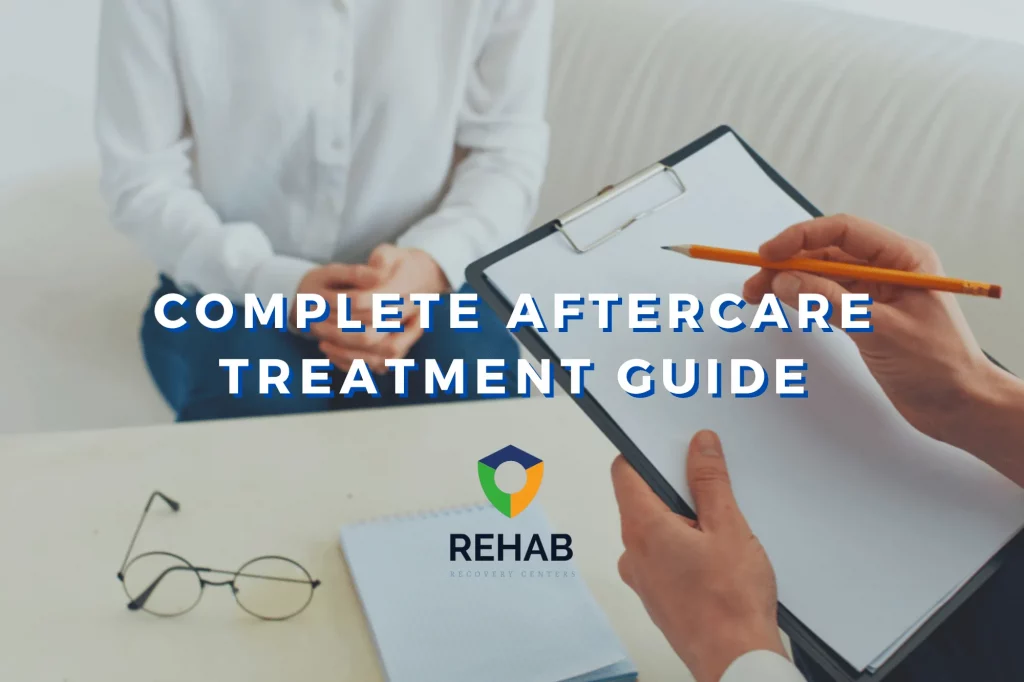Table of Contents
According to the US Surgeon General, an estimated one in seven Americans will struggle with substance addiction at some point in their lives. For that one out of seven, the chances of relapse are always present because addiction is a lifelong battle.
Entering a rehab program can be the first step towards sobriety. In rehab, you can detox in a safe space and begin to unpack some of the underlying issues that contributed to your substance use. What do you do once your rehab program is over?
We strongly recommend to all of our clients that they consider what we call aftercare treatment. Aftercare treatment contributes to long-term success and provides many people with the resources they need to stay on track.
Read on to learn more about what kinds of aftercare treatment options are available to you!
What Is an Aftercare Plan?
As your time in your rehab program comes to a close, you will work with therapists, counselors, and specialists to come up with an aftercare plan. An aftercare plan is a system of treatment or support that you can rely on to help you stay on track with your sobriety. While creating your aftercare plan, you will take into consideration your day-to-day circumstances, triggers, and any other relevant factors.
Aftercare is often considered part of your early recovery, although many people stick to their aftercare treatment for years. Aftercare plans include activities, resources, and intervention tactics. These are all designed to help you cope with any stressors as well as triggers or cravings that could otherwise lead to relapse.
Types of Aftercare Treatment
Let’s take a look at some of the aftercare treatment options you’ll be able to choose from. Note that you are not limited to one kind!
Many people blend different aspects of different treatment programs. Alternatively, they use some in the short-term and others in the long-term. All of this will depend on your needs and the most effective ways to fulfill them.
The Alumni Program
Many rehab centers offer what they may call the “alumni program.” This is a program designed specifically for clients who once attended the center’s inpatient or outpatient rehab program fulltime. The objective is to keep previous clients in touch with both the center’s staff and other alumni.
We highly recommend participating in your center’s alumni program, especially if you made strong connections during treatment. Alumni programs tend to involve both sober social events and group meetings.
12-Step or Recovery Meetings
12-step meetings are a traditional form of aftercare. They are locally based and may center around spirituality, although this is not always the case.
Programs using the 12-step model ask members to work towards on-going sobriety while also confronting difficult thoughts or conversations. The focus is on repairing the relationships you’ve had with people while coming to a full understanding of your own substance abuse. To facilitate your progress, you are asked to attend regular meetings and discuss any progress or setbacks you’ve had along the way.
Sober Living
Many people like to transition to a sober living situation immediately after their initial rehab program ends. It is not uncommon for substance abuse to occur in a social manner, meaning that other individuals are around or involved in your substance use. It can be difficult to transition back to your day-to-day life without running into these triggering situations.
Sober living allows you to cohabitate with other people who are recovering from substance abuse. The agreement is that no one living in this housing will use or bring substances into the house. This is a great way to maintain accountability and find support from others who understand exactly what you are going through.
Out-Patient Counseling
Counseling is an important part of substance abuse recovery. We often discuss the dual diagnosis, which refers to individuals who struggle with both substance abuse and mental health issues. This is a very common circumstance, as substance abuse is often a coping mechanism for deeper problems.
Out-patient counseling often involves weekly meetings with a therapist or drug counselor. During this time, you can continue to work towards a broader understanding of yourself, your life, and any trauma you may have experienced.
This allows you to make connections between your triggers and your patterns of substance usage. That way, you can replace your old coping mechanisms with new, healthy responses to triggers and tough situations.
Out-patient counseling tends to follow the cognitive-behavioral model. This involves a combination of both short- and long-term goals that will keep you on track with your recovery. The overarching goal is to change your thinking patterns as well as your behaviors.
For some, counseling works best when paired with psychiatric treatment. A psychiatrist can assess your mental and emotional health and determine if certain medications could help your recovery process.
Rehab Aftercare Helps You Stay on Track
Many of our clients worry about what comes after rehab. Whether you’re participating in inpatient or outpatient rehab, you are provided with a safe environment to detox and stay clean. However, sobriety is much harder to maintain when you’re out in the real world dealing with life’s stressors.
This is why aftercare treatment is an important part of the recovery process. Aftercare treatment continues to provide you with the tools and resources you need to live a happy, sober life!
To find out more about your aftercare treatment options, contact us today and we’ll get started developing your aftercare plan.
Get Help Today
Don’t go through the process of recovery alone. There are people who can help you with the struggle you’re facing. Get in touch with one today.


